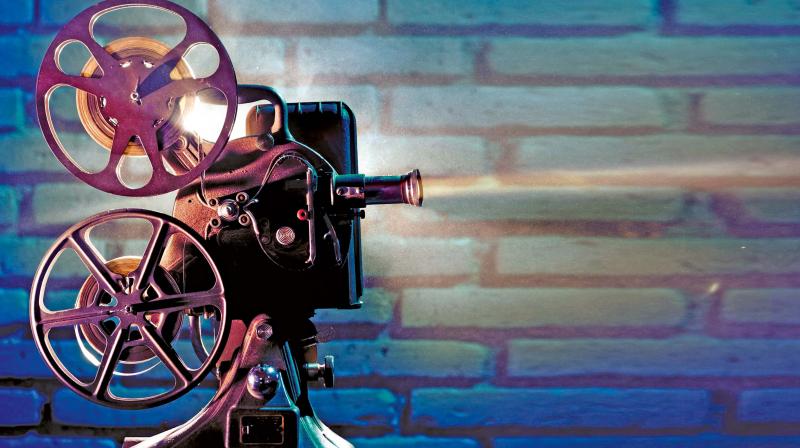Are you taking note, aspiring filmmakers?
People who hogged the limelight with their very first projects, provide valuable suggestions for budding directors.

It’s not just because he’s only 21, critics and audiences also find it fascinating that filmmaker Karthick Naren, with his very first film, managed to deliver an intense crime-thriller without any compromises. In fact, many aspiring filmmakers now consider Dhuruvangal Pathinaaru's success story an inspiration — and why not?
But how does one manage to successfully turn a solid script into a engaging watch on screen, with his/ her first attempt itself? How much does the hero matter? Is it better to have a producer you know personally? How much can you compromise? Here’s some insight from those who made it...
Karthick Naren, Dhuruvangal Padhinaaru
I can’t give any advice as I’m just only a film old — but I can share my experience so far. First of all, once you decide to be a filmmaker, never be influenced by people who might discourage you by saying that it’s all an illusion and you can’t be successful in this field.
There is also a misconception that short films and feature films are entirely different. Once you approach your first short film as strongly as your feature, that in itself can be a huge learning experience.
Of course, there are few people who make short films and upload them on YouTube just to be ‘cool’, but if you’re really passionate, then making such projects can benefit you a lot. You will get the confidence at some point that you can do a full-length feature.
I can’t really speak on how you should approach a producer — in my case, I didn’t really get chance to talk to many of them. They were not willing to listen to a story from a 21-year-old! Though I can’t blame them, I began questioning myself. Finally, my dad funded the project... and it all worked out.
Balaji K. Kumar, Vidiyum Munn
As the saying goes, there are no bad stories; there are only bad storytellers. So, focussing on your script should be the foremost duty — it might even be the hardest thing in the world, but once you have an extra-ordinary script, getting producers or the money becomes an easy task. The problem I find with today’s generation is that they want to do everything so quick — but they lay less emphasis on doing things the right way.
Since I was in the US for almost 27 years, and was associated with cinema, I have a lot of friends who are technicians and filmmakers in Hollywood. I watched Robert Zemeckis’ Allied recently — and it was good. I’ve been following his work right from the film he made for his graduation thesis, and it is mind-blowing to see how he has grown through these years. His mastery over the craft was so
evident with his recent offering. I’m saying this because, filmmaking is an organic process. Also, I strongly believe that a filmmaker differs from a director — the latter can be the former, but not the other way around.
Vijay Kumar, Uriyadi
A first-time director will have all the time in the world to write his script. I’m not saying you can’t take this crucial part for granted, but since he/she is inexperienced, the difficult part comes only after that. I would suggest aspirants to never compromise on your casting — even if your producer tells you otherwise. Sometimes, your script wouldn’t need bankable actors or big stars. So stick to who you feel would do justice to the role you’ve written. Secondly, you should plan your shoot meticulously — only then you will be able to get the desired output and not make any changes because of the last minute challenges. And finally, be very careful during the post production phase — it might make or break your film.
I would also like to say, one shouldn’t fall in the trap of making a certain kind of movie because it’s a trend — it will then be the first compromise you’d be making, even before penning the script. For example, there is nothing wrong in writing a horror-comedy script if you really have a good story in mind, but don’t do it because that genre is doing good business.
Balaji Mohan, Kadhalil Sodhappuvadhu Yeppadi
It all boils down to the producers who fund your debut film. Some debutantes even get members of their family to produce the film — in which case, they wouldn’t face any issues. Or sometimes, like in my case, we get good producers who believe in us and the script, making sure that there are no hindrances.
It is important that the director holds on to his creativity, and tries to stick to it throughout the making of the film. For some filmmakers, finding approval for their choices might be difficult, so that’s where their people management skills come into play. They have to handle the people on sets well, and command respect from their team. It is important that they prove to the producer that they are doing the right thing. You cannot expect the producer to blindly agree to them — they’re putting in their money, after all.
One shouldn’t be making a debut unless he or she is ready to take on the responsibility. They must have confidence in themselves and make sure to convince each and every person they come across. Also, age shouldn’t be an issue for when a director should debut. I was 23 when I directed my first film. It’s only how much one is equipped that matters.
(With inputs from Niveda Manohar)

